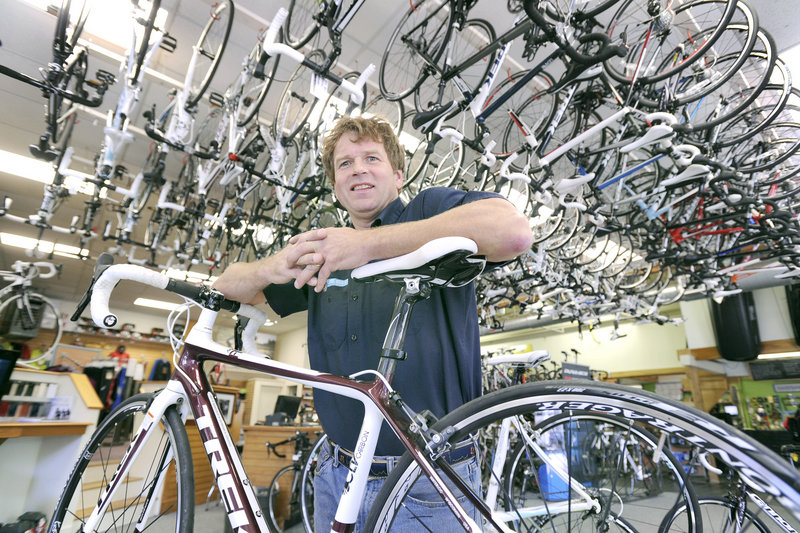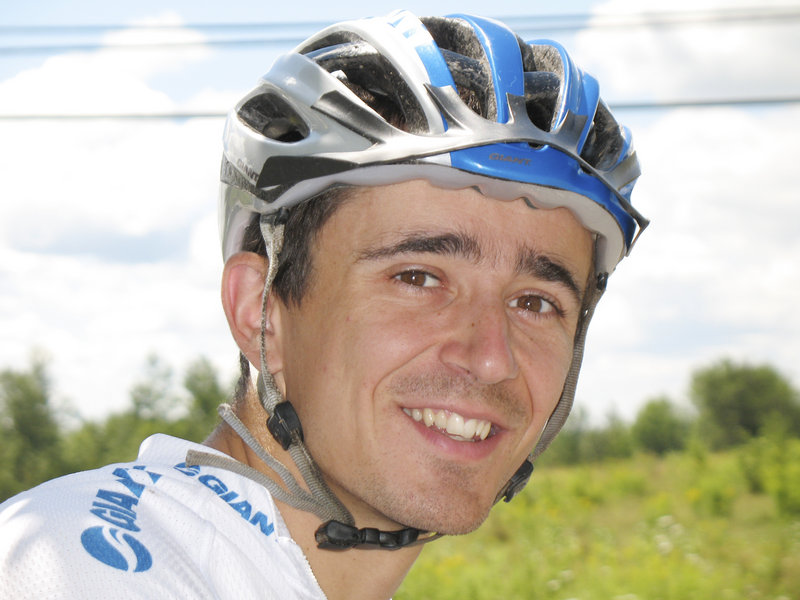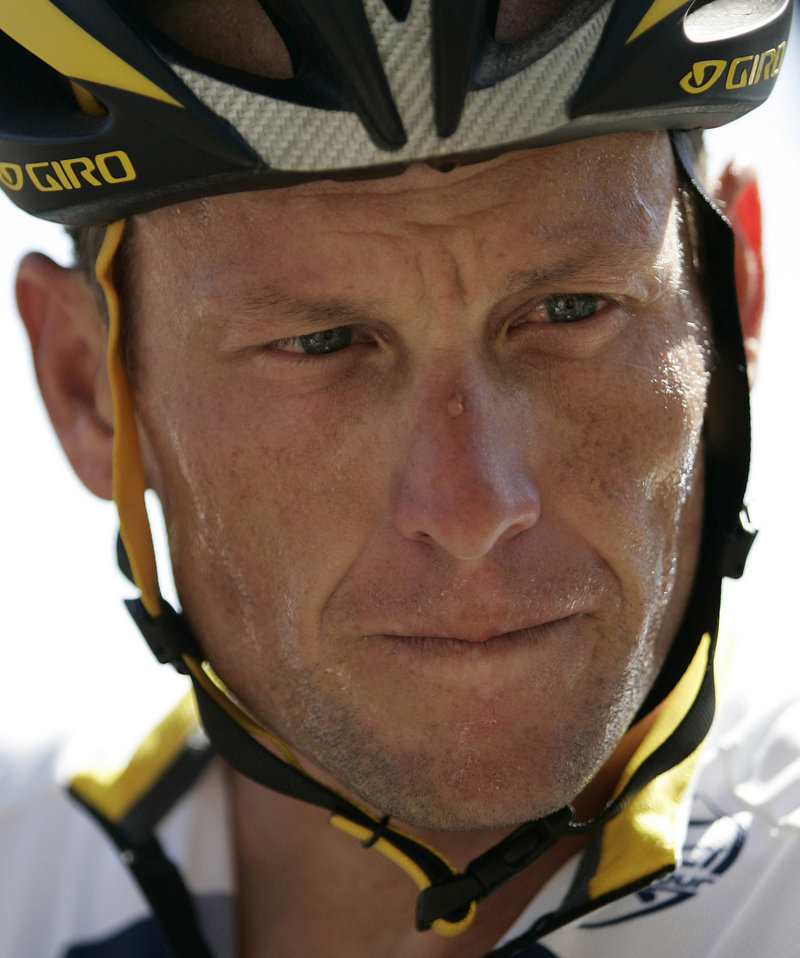For Maine’s bike-racing community, the news couldn’t be worse: International cycling’s governing body on Monday stripped Lance Armstrong of the seven consecutive Tour de France victories he earned from 1999 to 2005.
“Right now, the cycling world is taking it on the chin,” said John Grenier, who owns Rainbow Bicycle, a high-end bicycle shop in Lewiston.
While not all believe Armstrong is guilty of leading a massive doping operation, as alleged by the U.S. Anti-Doping Agency, it’s clear that the news will make it harder for professional racers to get sponsors and that racing in the near term will suffer.
The financial fallout is already being felt. Last week, as a result of some of the dramatic evidence uncovered by the anti-doping agency’s investigation, Dutch mortgage lender Rabobank said it no longer wants its name linked to cycling. The company is among the sport’s biggest sponsors, spending nearly $20 million last year.
The situation is especially unfair for the new generation of riders who are committed to being drug-free, said Adam Craig, a professional off-road cycling champion who wore the Rabobank logo on Sunday while winning the Downeast Cyclocross at Pineland Farms in New Gloucester. Rabobank has been one of his sponsors.
“It’s a pretty bleak situation for everyone. It definitely affects me as well,” said Craig, 31, who grew up in Exeter and now lives in Bend, Ore., a national mecca for biking.
At the same time, he said, he admires Rabobank’s decision because of the message it sends.
“At some level, I commend them for taking that stand. It’s ‘Hey, you jerks need to smarten up.’“
Craig, who represented the United States at the Beijing Olympic Games in mountain bike events, said he hopes the scandal will increase public interest in mountain biking, which he described as a “much cleaner” sport in part because there’s less money involved.
The U.S. Anti-Doping Agency sent 1,000-plus pages to the cycling union, including a report from 26 witnesses, 11 of them former Armstrong teammates, who alleged Armstrong and his teams used steroids, the blood-booster EPO, blood transfusions and testosterone in a sophisticated doping scheme during his Tour de France title run, according to The Associated Press.
Armstrong has long denied the doping allegations and has said he’s passed hundreds of drug tests.
While some cyclists have long believed that Armstrong was doping, others thought he was unfairly being targeted because of his fame, said Paul Weiss, past president of the Portland Velo Club, Maine’s largest cycling club.
But now, with damning testimony coming from respected cyclists, it’s harder for Armstrong’s supporters to defend him, Weiss said.
“A lot more people are convinced of his guilt,” he said.
He said it’s obvious that the sport is a lot cleaner now because riders are more equally matched and there are no more super-human performances.
“A lot of riders now have bad days, which a normal human would have, rather than three weeks on a giant tour and having no issues whatsoever,” he said.
Dave Palese, general manager of Gorham Bike & Ski in Portland, said that Armstrong’s fame among the general public provided a huge boost for road cycling’s popularity. That phenomenon, known in the industry as the “Armstrong effect,” was at its greatest several years ago.
While the scandal will hurt professional racing and sales of high-performance racing bikes, he said, it won’t have an effect on the recreational market.
Despite the accusations against him, the excitement that Armstrong generated about cycling will remain as his legacy, said David Brink, co-owner of Cycle Mania in Portland.
“We have fans in cycling because of him. He had an enormous following,” Brink said. “We cannot take away from Lance what he has given to the sport, and what he has done to get people off the couches and out riding bikes.”
Still, nobody benefits when a role model like Armstrong is disgraced, said Andy Greif, executive director of the Community Bicycle Center, a youth enrichment program in Biddeford.
“It’s not good for anybody,” he said. “It’s another example of adults being poor models for kids, especially an adult who has a lot of name recognition. I see too much of that.”
Staff Writer Tom Bell can be contacted at 791-6369 or at:
tbell@pressherald.com
Send questions/comments to the editors.





Success. Please wait for the page to reload. If the page does not reload within 5 seconds, please refresh the page.
Enter your email and password to access comments.
Hi, to comment on stories you must . This profile is in addition to your subscription and website login.
Already have a commenting profile? .
Invalid username/password.
Please check your email to confirm and complete your registration.
Only subscribers are eligible to post comments. Please subscribe or login first for digital access. Here’s why.
Use the form below to reset your password. When you've submitted your account email, we will send an email with a reset code.